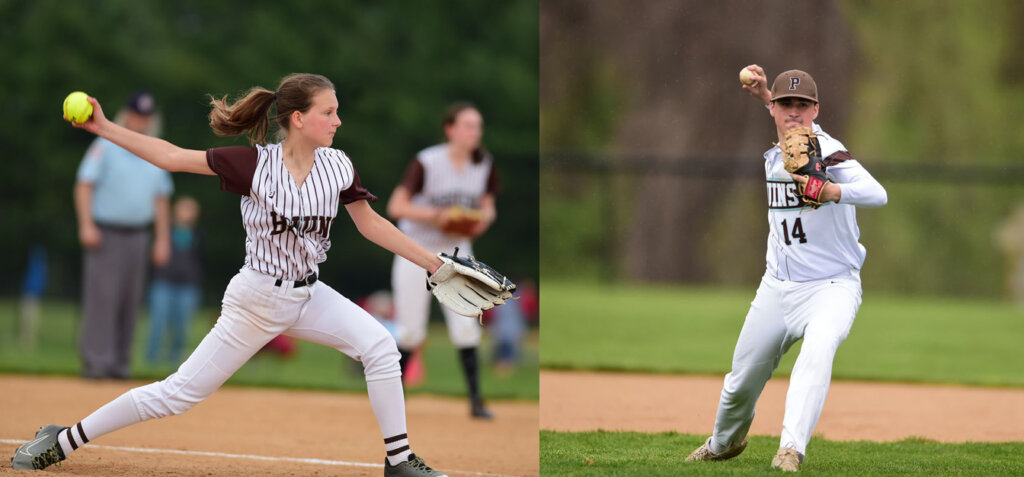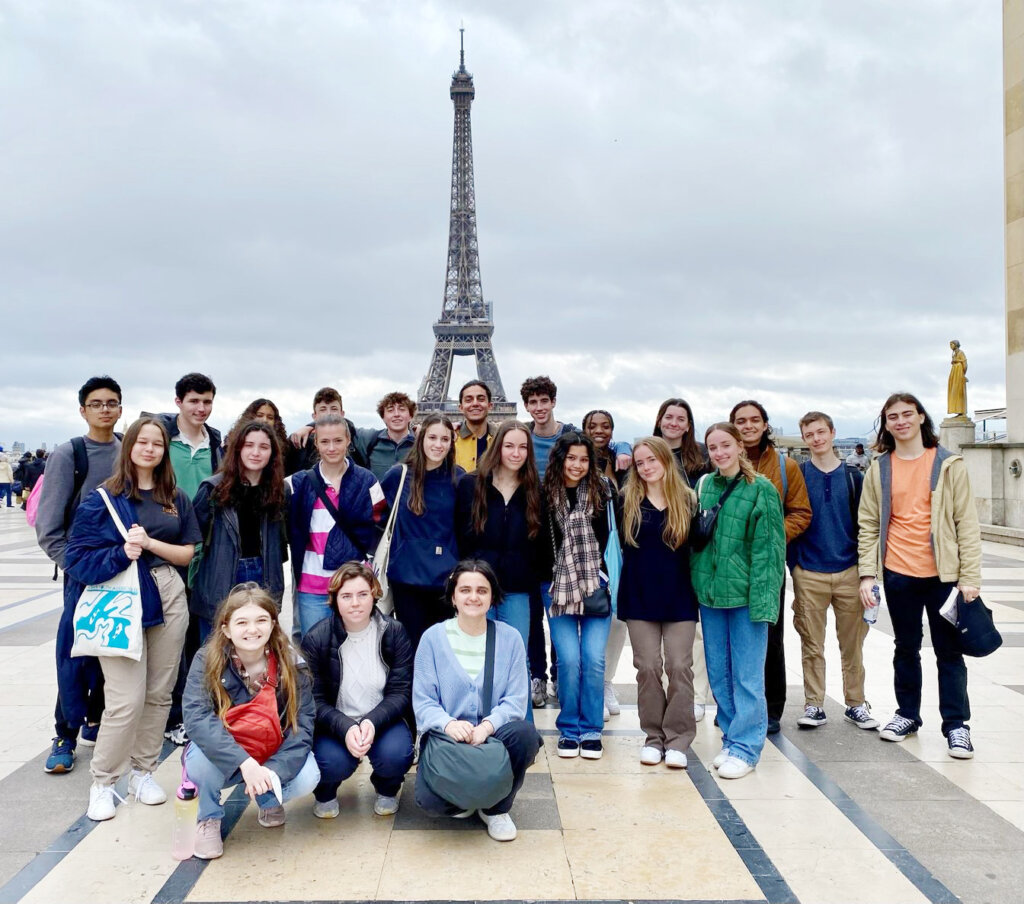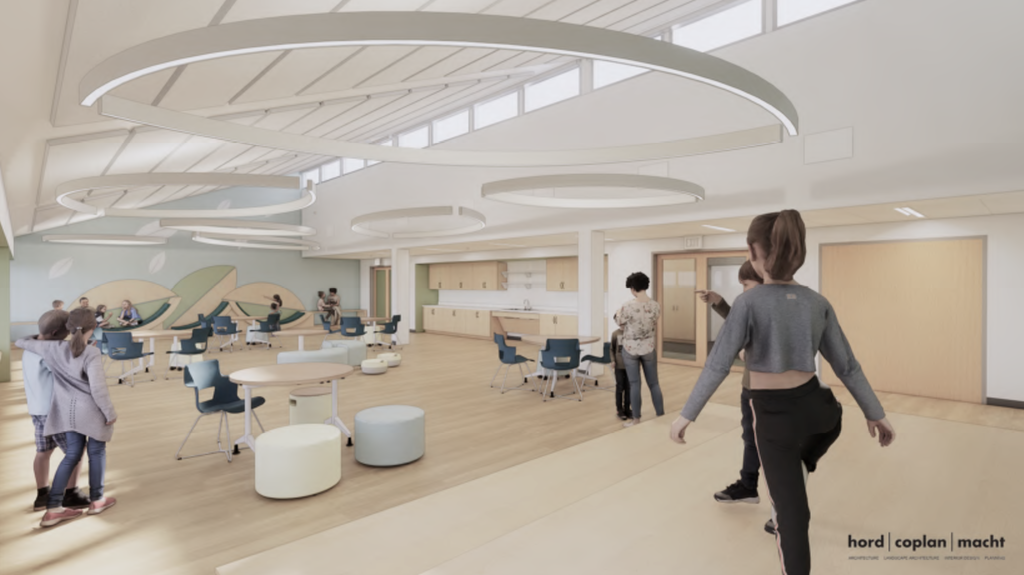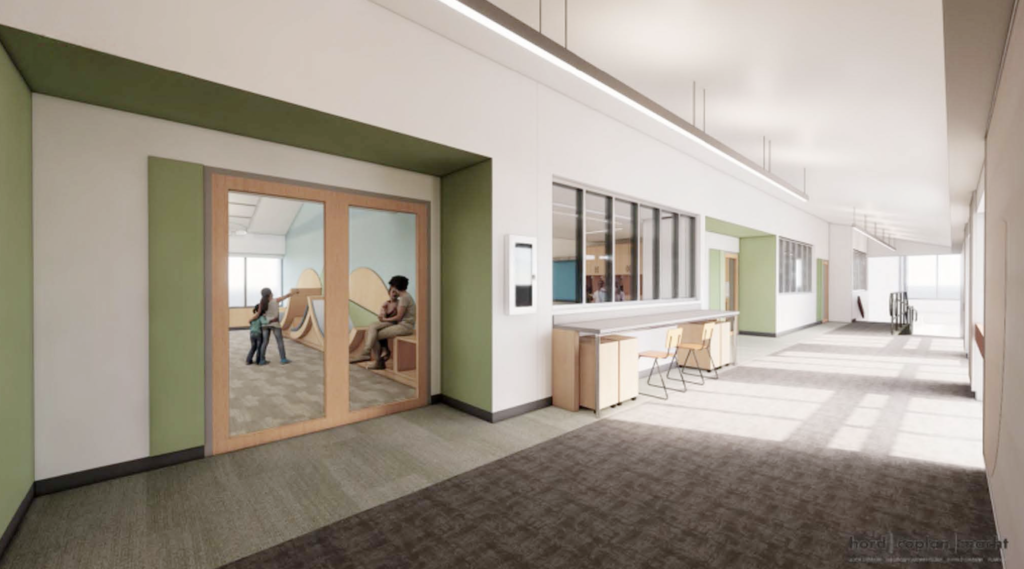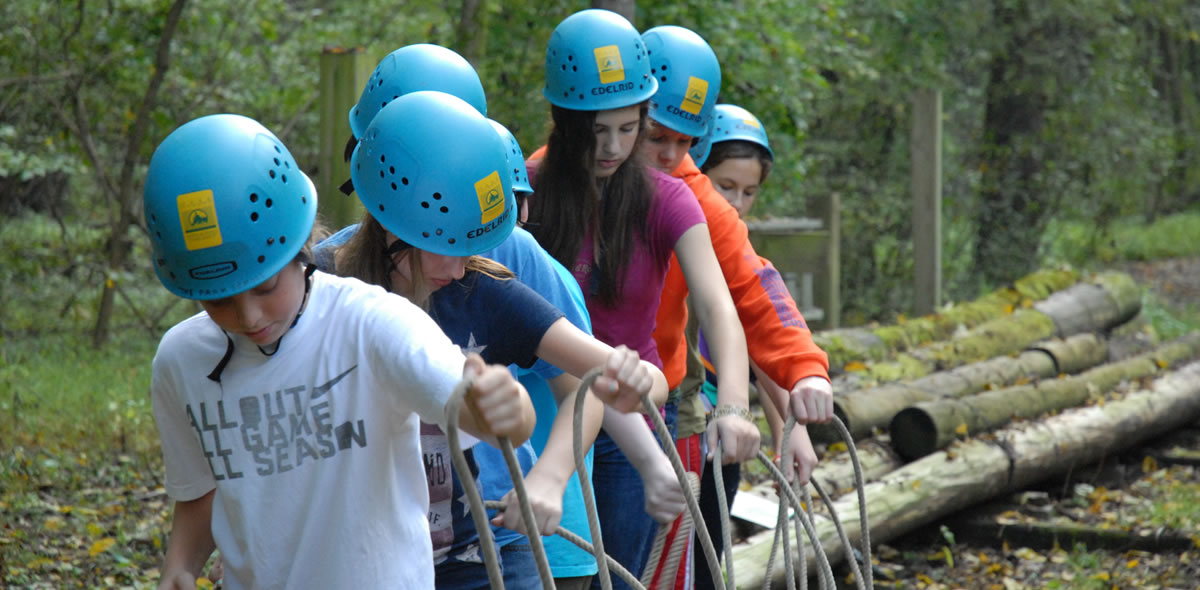General Information
Principles of Conduct
Students at Park are expected to conduct themselves with regard for other members of the community and at a level of maturity appropriate to their age. To meet these standards, students must consider the rights of others, respect property, and appreciate the overall purposes of the school.
There are few absolute rules of behavior. The school stresses respect for the individual and expects the individual, in return, to respect the community of which they are a member. Respect necessitates keeping in mind the following questions as guides to behavior:
• Are my actions preventing teachers from teaching or students from learning?
• Are my actions jeopardizing the safety and/or well-being of myself or others?
Since respect for all members of the community is fundamental to the school’s values, any incident that reflects disrespect for a fellow student or a faculty or staff member violates this ethos. Instances of racism, religious bigotry, sexual harassment, and other forms of discrimination (including electronic) are considered very serious offenses and cause for immediate disciplinary action.
Instances where behavior off campus and/or outside of school hours negatively affects the learning environment at school are considered offenses against the community and will be treated as such. Students who are unable to balance freedom and responsibility may not be re-enrolled or, in extreme cases, may be asked to withdraw during the academic year.
Integrity
Students are expected to maintain high standards of honesty in personal and social activities and in all aspects of their academic program. In the composition of written work, in the submission of homework, in class preparation, and in the taking of tests, students are expected to be scrupulous in acknowledging sources of information, in documenting research, and in indicating the degree and kind of assistance provided by others. Dishonesty in these areas represents a violation of the fundamental spirit of an educational community and will be considered a serious offense. The Upper School faculty has developed a statement addressing academic honesty, which is reviewed with students annually.
For more information about Integrity, please see Academic Honesty.
Guidance and Advisory System
A faculty advisor is carefully chosen for each new student prior to the start of ninth grade (or whenever the student enters the Upper School). The advisor is responsible for overseeing the student’s academic development, approving the student’s choice of courses, reviewing progress reports, and providing personal and academic support. The advisor is also the primary liaison with parents/guardians.
College Counseling
College Counseling is viewed as an extension of the individual guidance offered to students. Co-Directors of College Counseling assist students in exploring the wide variety of college options available, so that the students may make informed decisions on their own. They begin meeting with students and their parents during the junior year to help each family determine a timeline, set priorities, and provide resources related to the search, including specific college information, scholarship information, and summer study opportunities. All this is done with the academic, social, and personal needs of each individual student in mind. During the second semester of junior year and the first semester of senior year, weekly group college counseling meetings explore issues and procedures that are part of the college choice process. Individual counseling continues throughout the process. In addition, an Essay Writing Workshop is offered in June of the junior year, and an Application Bootcamp takes place just prior to the start of senior year.
Reports and Grades
At the end of the sixth week of the first semester, all students new to the Upper School, including all ninth graders, receive a written report to provide an early, if necessarily tentative, evaluation of placement, work habits, and progress.
At the midpoint of each semester, a quarter report with a checklist of skills and grades is prepared for all students. Parents sometimes schedule a conference with the advisor or principal at this time. Periodic updates on a student who is having difficulty may be requested by the student, faculty advisor, parents, or principal at any time. These updates are shared with the student, and can be sent to parents who wish to review them.
Semester progress reports are available after each term through the student and parent/guardian Veracross portals. The reports may include a checklist of skills, a written comment, and a letter grade. Grades are not assigned on a uniform percentage scale. Teachers set the specific criteria for their classes and communicate their expectations to their students.
The official high school transcript, kept in the College Counseling Office, lists all courses, grades, and credits received, as well as activities and special honors. In full-year courses, only the final grade for the year appears on the transcript. In the senior year, the first transcript sent to colleges lists all courses taken through the first semester of the senior year.
Standardized Testing
Students typically take the Preliminary Scholastic Assessment Test (PSAT) twice: in the spring of sophomore year and in the fall of junior year. In the spring of junior year, students can take the SAT or ACT; often they do so again in the fall of senior year.
Standardized tests, at best, give a range of student aptitude and achievement. Individual scores must be interpreted in light of previous test results and actual performance in school. The college counselor, as well as faculty advisors, will discuss any patterns with parents and students.
As of September 2009, Park no longer offers courses specifically designated as Advanced Placement. In many cases, the courses we designate as Accelerated include the material covered on the Advanced Placement (AP) exams, in addition to other accelerated material relevant to the subject. Students may elect to take Advanced Placement exams, given in May. They should consult with their teachers and advisors about taking these exams.
Academic Support
A Director of Upper School Learning Support and a Learning Resource teacher work collaboratively with faculty and other student support staff to meet the individual learning needs of students in the Upper School. Direct support from the Learning Resources team is an option for all students and may be initiated by a student, teacher, advisor, or parent. This support typically focuses on broad curricular skills such as notetaking, study skills, or executive functioning strategies. Students with diagnosed learning differences or attentional disorders may be eligible for school-based accommodations. Parents should contact the Director of Upper School Learning Support if their child has undergone psychoeducational testing or if they would like to learn more about that process. Staffed by learning resource teachers who can provide support as needed, the Upper School Learning Center is a space dedicated for Upper School students to do independent work and group work during class with teacher permission or during free periods.
Tutoring
The single best source of support or extra help is the teacher of the class or another member of the department (a student’s former teacher, for example). The Upper School schedule is designed to facilitate meetings between faculty and students during the academic day, though connections before and after school are also possible. If a student’s need for help exceeds what is reasonable to expect in sessions with teachers, the following supports are also available:
The Michael Cardin Writing Center provides an opportunity for students and faculty to work with trained student tutors. These tutors are available to assist with organizing, clarifying, and focusing written work in all subject areas. Students may seek help on a specific assignment or may establish a regular appointment through the program’s coordinator.
Student tutors are also available to help in mathematics, modern languages, and core science classes. Students interested in receiving help should see the appropriate Department Chairs.
In some instances, professional tutoring may be suggested by the school, the student, or the parents. Arrangements for outside tutoring are made by the parents, in consultation with the teacher, the advisor, the Director of Upper School Learning Support, the Dean of Students, and/or the Principal.
Technology Resources
All Upper School students are provided with a Park email address and Park Google Drive account; the use of these accounts and any of Park’s technology resources implies an endorsement of the school’s acceptable use policy and a commitment to be responsible for the use of school devices and data. Students are free to store any school-related work within their Google Drive account. All data sent from, received to, or stored on Park email or Google Drive accounts remain the property of Park School. Though Park provides laptop computers and tablets to students for certain specific in-class activities, students bring in personal devices to school.
Homework
Workload should be one important factor students consider as they create a schedule. Most teachers give both daily and long-term assignments. Depending on the student’s academic program and pace of work, nightly homework can vary from two to four hours, with 45 minutes for the standard per class.
Student schedules normally include free time during the school day. Learning to use this time productively is an important part of the Upper School experience. Independent times offer opportunities for the individual to organize their own time productively and appropriately, whether studying quietly in the library, working with a group in the Commons, organizing and carrying out activity or community service responsibilities, or seeking extra help from a teacher or advisor.
At home, parents can support the development of independent, responsible study habits by providing protected time and space. Limits on television, the telephone, and computer or internet usage may be helpful, particularly when the student is included in any discussion about setting appropriate guidelines.
Attendance
Regular, prompt attendance at classes, assemblies, meetings, and activities is a fundamental responsibility. The school day begins at 8:30 a.m., and students should be in their first class at that time. Excessive absences and/or lateness interferes with the learning process and, as such, the school expects that students will strive to keep absences to a minimum. Students who miss more than 20% of a given class’s meetings cannot earn credit for that class. If absences become excessive, the school will initiate a meeting with the family to determine what measures will best help the student comply with the school’s expectations.
Advanced and Accelerated Courses
With the exception of English and history, every department in the Upper School offers accelerated courses, which assume more comfort or ease in that discipline, a greater interest in it, and a resulting commitment to put in more time on the readings, essays, term papers, or exams that such courses demand. Some of these courses will, as part of their design, prepare their students to sit for the Advanced Placement (AP) examination in those subjects. (Note: Because our students read much great literature and reflect on it often in all of their English courses, they have traditionally taken and done very well on the corresponding AP exams, though no specific course prepares them to do so.)
Device Use in School
While technology use in schools has many pedagogical and social uses, we also believe that it can contribute negatively to the depth of engagement in school, the development of social skills, and student mental health. This policy is designed to help us all immerse ourselves deeply and positively in our learning and construction of community.
Phones
- All students must store their phones in the boxes in the main office from 8:30 a.m. to 3 p.m. while on campus. Students will be assigned a specific slot for their phone, and they may not use it while on campus. The boxes will be locked for security.
- Students should arrive at school by 8:15 a.m. to store their phones, get materials ready for class, and be on time to their first class. Students arriving late must come to the US Main Desk to sign in and store their phone.
- If a student is leaving for an appointment or using earned Senior Privileges, they will sign out at the US Main Desk and may retrieve their phone. If returning to campus during the school day, they will sign back in and return their phone to the boxes.
- If a student has a phone during the school day, it will be taken to the Upper School Dean’s Office and parents/guardians will be notified. Difficulty following this policy will result in family or grade-level meetings and appropriate consequences to address the underlying issues.
- Medical Need: Accommodations will be made to this policy for students with demonstrated medical need on a case-by-case basis. Students who are granted these exceptions must hold themselves to the spirit of this policy at all times; phones should be away and out of sight unless being used for a medical reason.
Tablets and Laptops
While the evidence is strong that handwriting notes is far more effective for learning, some students do find success taking notes on a tablet, and others on their laptops. These may be used during class per the teacher’s directions. Students may be asked to close them or put them away at times, depending on the needs of the activity. Accommodations are made for students with specific learning needs, as designated by the Learning Resource Office. Students who are found to be misusing their laptops or tablets during class — messaging, social media, streaming, or mirroring their phones — may lose the privilege of their use until they are ready to do so productively.
AI Use in the Upper School
With the advancement of artificial intelligence (AI) tools, it is important to outline Academic Integrity in the age and context of resources such as ChatGPT, Bard, Google Translate, Photomath, and other similar tools/technologies that may or may not yet exist. Students are expected to develop their own understanding and knowledge of the subject matter and demonstrate their mastery in their own voice.
The use of aforementioned tools as a learning aid should be used for reference purposes only and not to be used as a substitute for original ideas and/or thinking. AI tools are exactly those — tools. They should be used intentionally and thoughtfully. Submission of work that uses or is aided by unauthorized or uncited technology as one’s own work is considered a violation of academic honesty.
